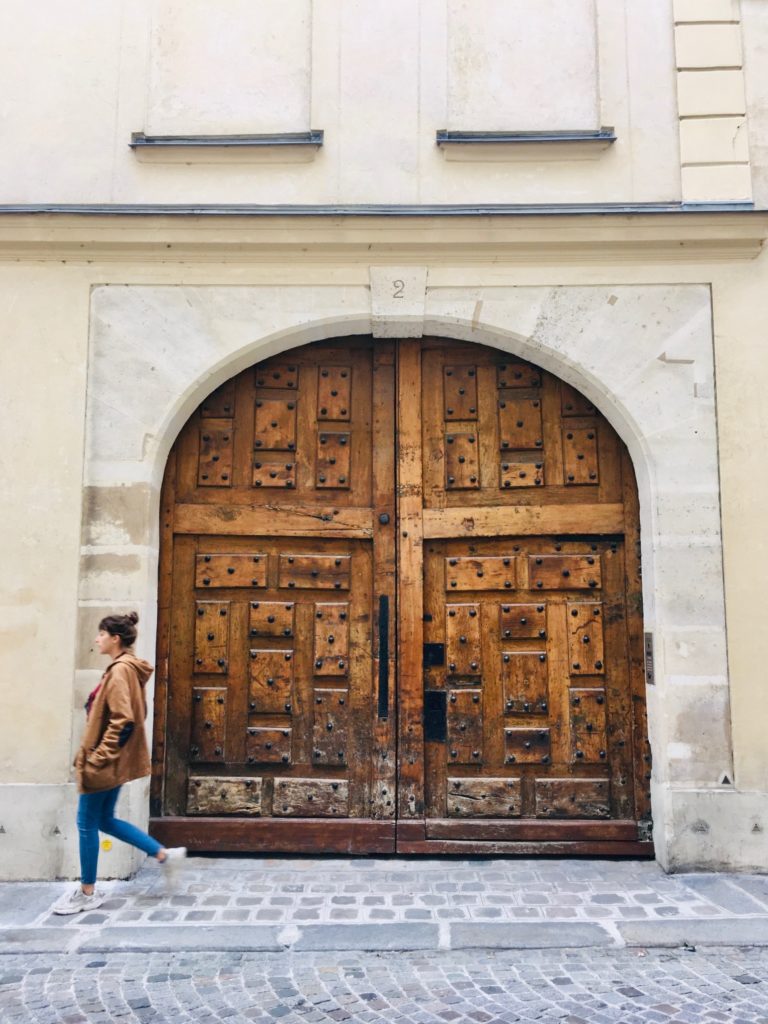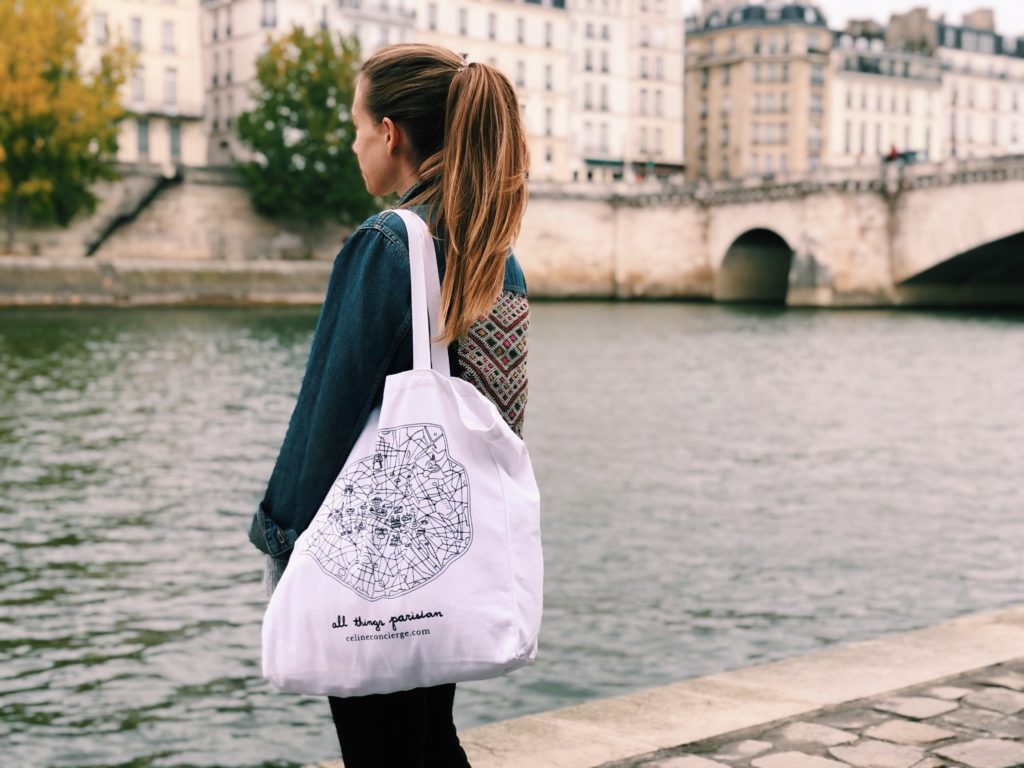
Paris Expats: How do Expats Live in Paris?
Reading Time: 12 minutesDISCLAIMER: This post may contain affiliate links which will reward me monetarily or otherwise when you use them to make qualifying purchases. For more information, please read my privacy policy and disclaimer.
Last Updated on March 1, 2021
Part 3
Paris Expats: How do Expats End Up Living in Paris?
 Photo Credit: Giuseppe Mondì
Photo Credit: Giuseppe Mondì
So you want to live in Paris – but how do you go about doing that if you live elsewhere? In Part 3, I explore the different ways my expat friends have managed to come to France. Whether on a short stay or long stay tourist visa, seasonally for months at a time throughout the year, as a student or through work. The various possibilities offer a unique way for you to live in France no matter your age, education, or background.
Throughout the interviews, I also examine some practical tips and lessons learned from taking that leap to move to Paris. Stay tuned for Part 4 that is all about the challenges and struggles that these expats went through and what they would tell their younger selves if they could. It will segue us into the finale, Part 5, that is all about visas and the interview with Daniel Tostado, an American friend and immigration lawyer who lives and works in France.
I share the two full interviews of my friends Claire*, an entrepreneurial drama therapist, and Eric, a design professional in the construction industry. Claire came to Paris to study acting and stayed to build an art and drama therapy business from the ground up while Eric works remotely for a US firm as an architect. They just go to show you that you can come to Paris as an entrepreneur just as much as any professional with a stable career back home.
I won’t stop saying this – the possibilities are endless and anything is possible when it comes to your journey!
For Claire’s full interview click here and for Eric’s full interview, here. Delight in their one-of-a-kind stories!
How did you end up living in Paris?
Claire*: I went from a student visa for the first two years then I converted it to a working holiday visa (for 1 year) which allowed me to work full time.
After that, I went back to Australia and I worked really hard to develop a dossier for the profession libérael titre de séjour. It’s a very difficult card to get, you have to prove that you have a lot of business that’s going to be generated – that you have clients already interested in working with you.
I got this visa so I could get the official auto-entrepreneur status. It took about 6 months to get the dossier together.
So I stayed on that until I met my now-husband and now I’m on the vie privée familiale visa.
☆
Hope: There’s an internship for people that have just finished university and love God. It’s called STINT and they offer 9 month internships all around the world. So I had applied through CRU (or Campus Crusade for Christ) in the US.
I came with AGAPE, which is a non-profit so I was able to get a visitors visa. They gave me all the paperwork that I needed. It’s like I was a volunteer in France, because I was getting my salary from the US.
☆
Eric: So I came on a one year long-term visitor visa and there’s a lot of stuff you have to prove. One of them is you can live here without working here, so you have to show them that you have money and enough money to live on.
And I was going to try to look for work online, I tried quitting my job– that’s how sure I was about moving to Paris.
And so a few weeks after initially talking to my boss (after I told him I was moving to France), I thought that I would ask to stay on and work remotely. The owners of the firm considered it and ultimately said ‘let’s try it’.
So I became a consultant through my LLC as an independent contractor for the firm.
☆
Jim: During my undergrad, I did a semester abroad at IAU (Institute for American Universities) in Aix-en-Provence where I did an intensive French curriculum…
I also did TAPIF (Teaching Assistant Program in France) where I spent an entire year in a small village in Normandy where nobody spoke English.
I moved to Paris in 2010 on the compétence et talent carte de séjour that’s for artists and good for 3 years.
☆
Hannah: I’ve always had the tourist visa because I always visited for 2 months or less at a time.
My ideal vision would be to split my time. I don’t want Paris to be the one that got away.
☆
John**: When I got asked to do a show at the American Church in Paris(ACP), it came with an apartment, like an artist residency for two weeks. The second day I was here in October, I fell in love and decided to move here.
**(John has lived in France for a few months on a tourist visa (early 2020), he’s going back to the US to apply for the artist visa and plans to come back to live in France in the near future).

E-BOOK PRE-ORDER
Get your copy of THE ULTIMATE PARIS SURVIVAL GUIDE and become an expert in All Things Parisian!
Get first dibs plus 2 FREE chapters by leaving your email here and I’ll contact you when the guide goes live.
I WANT IT!

E-BOOK PRE-ORDER
Get your copy of THE ULTIMATE PARIS SURVIVAL GUIDE and become an expert in All Things Parisian!
Get first dibs plus 2 FREE chapters by leaving your email here and I’ll contact you when the guide goes live.
I WANT IT!

Did you know French before living in Paris?
Claire: Acting school was mainly in mime. Otherwise I threw myself into acting classes that were only in French. Every opportunity I got I would just speak French, avoiding the English speakers.
After 2 years I was bilingual.
☆
Eric: I had studied French, I have a basic knowledge of the language. After my first trip in France, I decided to continue studying French on Saturday mornings.
☆
John: I didn’t know any French in October and I literally got DuoLingo after I got home from France. I thought, ‘Ok, I’m going to move to France so I need to start learning’.
For me it’s like I’m interested in it and I’ve always liked it in movies and stuff and music, but I’ve never studied it. It’s a new thing.
☆
Hope: So I have quite a history with Paris before and I started learning French throughout middle, high school and college.
☆
Jim: I spoke ZERO French and knew nothing about France or French culture until I met my friend Galaxie who moved to Arizona after growing up in Normandy, FR. As I became more and more curious about her and her culture over the years, I decided to take French 101 just for fun. But I ended up loving it so much that I continued to take French classes throughout college…
☆
Click here to get your FREE PDF
All Things Parisian
Bucket List 2021
☆

How did you find housing in Paris?
John: I knew another artist who did a residency for a month and kinda got the ball rolling a little bit, and then someone else referred me to an apartment owner but I had some hesitations.
She just kept messaging me but I kept wanting to look at other places.
But when it came down to it she was excited when I sent her what I am working on. And with these other anonymous places it would be a big problem for me to ask to get a piano moved in.
You turned out to be a godsend as well. Everything worked out so magically well.
☆
Eric: In August of 2019, I applied for the visa online. I hired a real estate agent to find an apartment.
You have to tell them where you’re going to be living. You have to have a lot of things set up already when you apply for your visa.
☆
Jim: As a freelancer, it’s really difficult to lease an apartment because they always turn you down unless you have a full-time work contract. I found better luck through Le Bon Coin and going directly through the landlords themselves rather than apartment agencies.
What lessons have you learned from living in Paris?
Claire: Patience.
You wait in lines, you wait on the phone, things take forever! It’s not today – it’s in three weeks – you have to be very patient with the French. I’ve learned to be more direct and honest with my feelings.
Thanks to the French culture and the French way of seeing things, now I’m much more confident to say something when something is not sitting right.
I think also being bi-lingual, you don’t always have time to nuance things so you just get to the point.
It can be a bad quality as well, it’s not always positive. But I’m glad I’ve developed the skill of being more direct.
☆
Hannah: I have learned that you have to go after what you want. You have to fight through the fear and sometimes do things alone.
I got tired of not experiencing the things that I was too afraid of. To experience the full benefit of Paris, especially if you’re alone, you have to figure out a way to get out of your comfort zone and explore and just be content not knowing and be content not doing it perfectly.
And going with the flow–you have to go with the flow– I think Paris forces you to be.
☆
Eric: France has a lot of red tape. It has a lot of bureaucracy. And you really need to know that coming here.
If you don’t know that, I think you’re going to be miserable or feel defeated.
That’s not to say that you can’t but it helps to know that.
Coming here, I’ve learned that that’s very true. You’re gonna have all the documents they ask you to have and still something’s gonna be wrong.
☆
Jim: I learned that moving to a different city like Paris doesn’t automatically change your life for the better. You can’t just pack up your bags, move to a new city and think that your life is going to be better for it. If you’re looking for a positive change in life, YOU need to change as well…
Biggest lesson– get out of your comfort zone.
☆
Hope: I’ve learned to keep my eyes on things that matter and let go of the things that don’t.
In even just moving apartments, you can’t hold onto a lot here that doesn’t matter.
And in relationships, learning as an expat that Paris is a revolving door. And that was really hard. I’ve learned a lot about relationships being kind of seasonal for a lack of a better term. But always keeping my eyes on the things above and not focusing on the hard things.
I’ve found that the longer I stay, the more people leave.
☆
For more French Lifestyle read:
Expat Living in France: What To Expect When Visiting Family Back Home
12 Ways You’ll Always Have Paris In 2021
Is ‘Emily in Paris’ Accurate? Part 1 | 7 Things the Show Got Wrong
Is ‘Emily in Paris’ Accurate? Part 2 | 7 Things the Show Got Right
How to Plan a Trip the Smart Way: 5 Tips to Plan Your Next Trip
☆
What’s your biggest frustration with Paris?
Eric: The attitude of, “Oh, well we do it this way, because that’s how we do it.’
Kind of keeps them a little bit slow to adopt new ways. Some days that’s what’s charming and some days that’s what’s frustrating.
☆
Claire: The aggressivity, the tension, the stress. That’s frustrating to me, it’s always there, it’s like a pressure cooker.
☆
Hope: The prefecture! I think you know this well, don’t you? But I spent 9 months trying to change the status of my resident permit to a student.
Because I had already lived here, I applied to La Sorbonne as a French resident (not as an international student) with a French address and I applied as a regular student. So then my case became a cas particulier, or a special case.
☆
John: No, spicy food! Where are the jalapeños?
☆
Hannah: Everything is hard- that’s not super clear. But because I haven’t moved there full time, I haven’t had to deal too much with the crazy bureaucracy, but everything is 10 times harder than it has to be.
Nothing happens quickly in France… Which is why people are good with going with the flow, but that’s why they’re also really impatient at the same time.
If you anticipate that things are going to take longer just manage your expectations.
☆
Jim: French bureaucracy! It’s astonishing how long and complicated it is to do paperwork or get anything official done here. It’s almost like they’re trying to discourage you from living here.
It’s never easy… You need to have a lot of resilience and patience.

If you had known about Céline Concierge, would you recommend using our services?
Claire: I think your services are important because see you seem to offer everything that someone could need; it’s not just the flights, its cultural and integration and its administrative. And it’s for expats and I think that’s really good.
☆
Eric: One of the things that I have learned through this process is that to go through it alone – especially being overseas like I was, being American, not being fluent in French– it’s a really tricky process, even when you get here.
Would you recommend Céline Concierge?
Claire: I would recommend you because you’re a trustworthy person who will work hard for the client and will deliver quality work.
☆
Eric: You definitely need the help of somebody that can help you through [the French process]. Without help from others, I wouldn’t be here.
To know that you’re working with an American who has been through that process, understands the normal fears or experiences those differences is extremely valuable.
I highly recommend that people get in touch with you or someone like you who knows what they are doing and has been through that process. It helps you to relax and you get to put some of that worry and that burden on someone else.
Conclusion:
If you’re anything like my friends who had a dream of living in Paris, you’re not alone! These people did it and each one spanned an extraordinary journey to realize that dream.
Some of my friends were students, taught English, were au pairs, some freelancers and some started their own businesses in France like myself! Yet, others only come seasonally or short term. Don’t think that Paris is an unattainable dream for “other people”. No – you too can come and live in Paris and even make your life here! You never know, many come and go, but others end up staying and building businesses, their lives, and raising a family. Before they know it, their kids are speaking French and eating camembert cheese for breakfast!
If you’re seriously considering coming to France, contact me today for your FREE 1-on-1 consultation to start that journey. I help people like you start their lives in Paris. With my experience in property management, I provide practical services like setting up an apartment rental or scouting out potential homes, if you’re considering purchasing. Check out the full list of my services here.
*Name is changed for personal reasons.



☆
Flaunt your French side with your very own All Things Parisian tote bag!
☆
Check out the other parts of the series:
PART 1
Paris Expat Series: Americans in Paris
We explore the idea of an expat and what motivates people to move to Paris.
There’s an introduction to the 6 friends I interview throughout this series.
PART 2
Paris Expat Series: Why move to Paris?
We’ll dive into first impressions and why they moved to Paris along with what they love about the place.
Full interviews with Jim Le, a seasoned expat turned French national & John Arndt, a musician and France newcomer.
PART 3
Paris Expat Series: How expats move to and live in Paris?
We’ll cover how people move to Paris and what lessons they learn from living here. We examine learning the French language and what their biggest frustrations are.
Full interviews with Claire A*., an entrepreneurial drama therapist & Eric Davis, a design professional in the construction industry
PART 4
Paris Expat Series: What it Means to Live in France
We’ll continue to explore the challenges and struggles of living in France. I also ask what they would tell their younger selves if they had the chance.
Full interviews with Hannah Smith, a seasonal visitor and digital nomad & Hope Curran, an art student attaining her master’s degree.
PART 5
Paris Expat Series: What Visa You Need to Move to France
Finally, you won’t want to miss this detailed interview with my friend and immigration attorney Daniel Tostado.
He gives us an insider’s scoop on the different Visas to be able to move to France and ways to apply.
Full Interview with Daniel Tostado, immigration attorney in Paris.
☆
For more insider secrets check out:
6 Mistakes Expats in Paris Want You to Avoid for the best advice on how to live in Paris
Coronavirus Quarantine: 10 Things to Help you Deal and ideas for productivity
Coronavirus: Is Travel to Europe Possible in 2020, your guide on how to stay proactive with your travel plans this year
The Best Things to do in Paris this Summer (that are off the grid) /
for a One-of-a-Kind Experience
Discover and embrace these 10 Secret French Lifestyle Rules Revealed
Where to stay in Paris: Insider Secrets to book Luxury Apartments to discover alternatives to booking luxury hotels.
Find out what the key is to your next Parisian adventure in this blog post The Secret to Your Ideal Luxury Holiday Today
Enjoy 10 Remarkable Ways to Experience Paris Like a Local
☆












Pingback: Claire's Full Interview | Céline Concierge | Paris Concierge
Pingback: Paris Expats: What it Means to Live in France | Céline Concierge | Paris Concierge
Pingback: Hannah S.'s Full Interview | Céline Concierge | Paris Concierge
Pingback: Hope Curran's Full Interview | Céline Concierge | Paris Concierge
Pingback: Paris Expats: What Visa You Need to Move to France | Céline Concierge | Paris Concierge
Pingback: Paris Expats: Why Move to Paris? | Céline Concierge | Paris Concierge
Pingback: How to Plan a Trip the Smart Way | Céline Concierge | Paris Concierge
Pingback: How to Au Pair in Paris | Céline Concierge | Paris Concierge
Pingback: Expat Living in France: What To Expect When Visiting Family Back Home | Céline Concierge | Paris Concierge